As an MBA student at Harvard Business School, Ahana Gautam’s mornings started with two cups of coffee and two croissants. She worried about why she wasn’t losing weight despite working out at the gym when a friend pointed out that she was having bread and butter for breakfast daily. This opened her eyes to the importance of a good diet and the need to have healthy food, especially snacks.
Ahana, raised by a single mother in Bharatpur, Rajasthan, often enjoyed ghevar (a Rajasthani disc-shaped sweet made from ghee, flour, and sugar syrup) and bhujia (deep-fried besan sticks) as her routine evening snacks after school. As she started learning about the importance of a healthy diet, she became aware of the unhealthy food she had been consuming since childhood.
Meanwhile, Ahana’s niece in India was diagnosed with Type 1 diabetes at 15 months, and Ahana’s sister-in-law struggled to find nutritious snacks for the child as she began attending playschool.
In March 2019, Ahana started her own snacks brand called ‘Open Secret’ to offer healthier alternatives. The brand offers over 30 snack varieties made from ingredients like dry fruits and millet. She asserts that their products contain no refined flour, trans fats, palm oil, or artificial preservatives.
The brand is on track to achieve a gross revenue of Rs 100 crore this year.
How a mother’s unwavering support sowed the seed of entrepreneurship
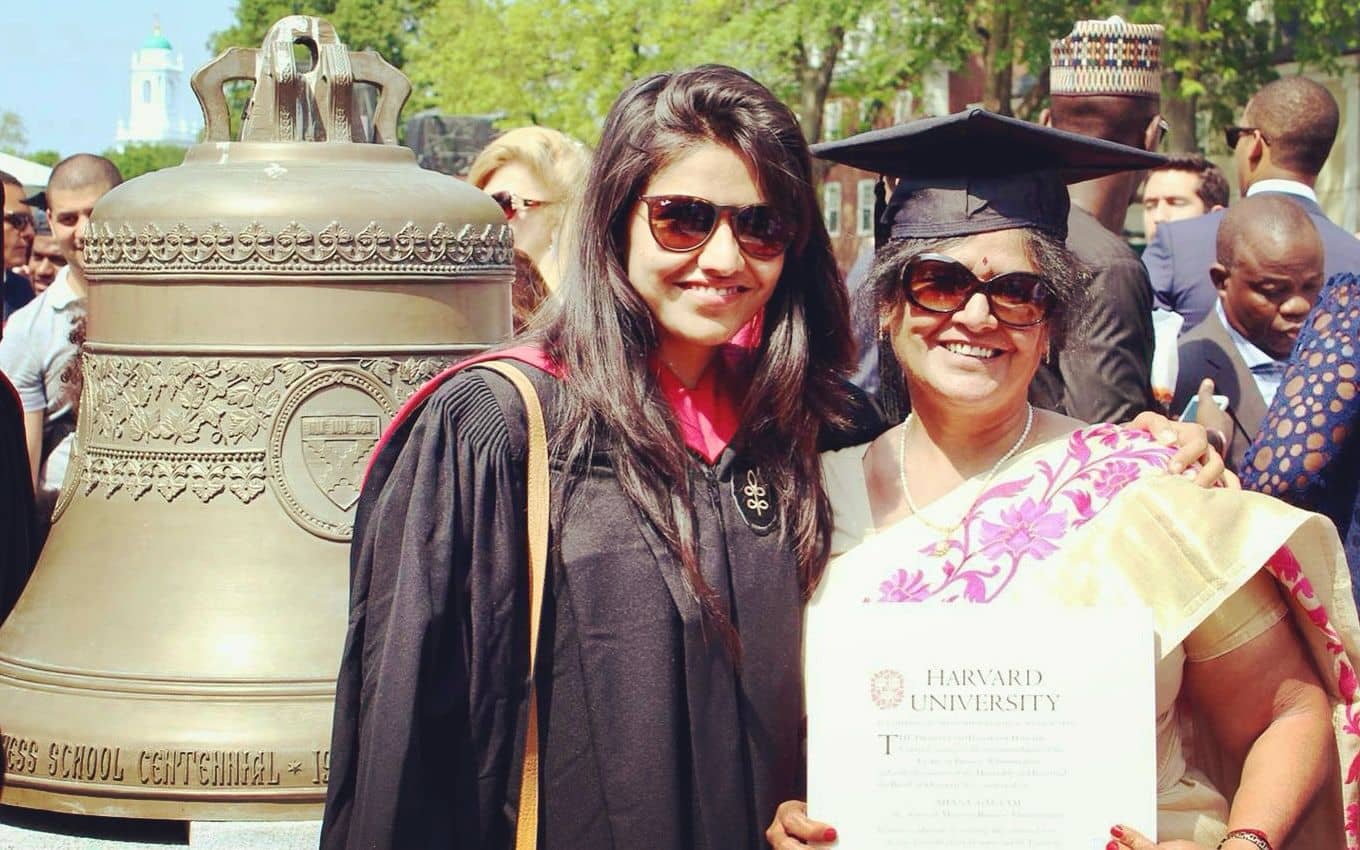
Ahana’s first goal when she was in school was to get into IIT Bombay, following in the footsteps of her brother. Her mother was a professor at a college and always told Ahana and her brother that education levels the playing field. This was etched in young Ahana’s mind as she worked hard to get into the prestigious institution — in a state with one of the lowest female literacy rates.
“I could see clearly how opportunities were not the same for both genders. My female classmates weren’t given the same education as their brothers. In fact, many families were okay with a mediocre education for their daughters. But my mom didn’t pay heed to what everyone said. She spent all her time working, as a single parent, to provide both of us with a good education,” Ahana tells The Better India.
When she gained admission to IIT-Bombay, some “well-wishers” questioned her mother about why she was sending her daughter to Mumbai, considering her dream (of having a child studying at IIT) was already achieved. In response, her mother simply said, “Let her do whatever she wants. Both my children are equal.”
It was at IIT that the entrepreneurial bug took birth inside the chemical engineer. Furthermore, being part of the entrepreneurship cell and the theatre group in college changed her outlook towards life. “I knew one day I wanted to create a brand from scratch. Storytelling, to me, is powerful, and I wanted to share my story through a brand. I decided it should be in the consumer goods industry, even though I hadn’t figured out the specifics,” she adds.
Even while studying at IIT, Ahana’s eating habits remained poor as she resorted to junk. She would fall sick often, be it at school or college, without realising that one of the reasons was the food she consumed. It would be four years later at Harvard when she would come to the realisation.
‘Why does India lack healthy packaged food?’
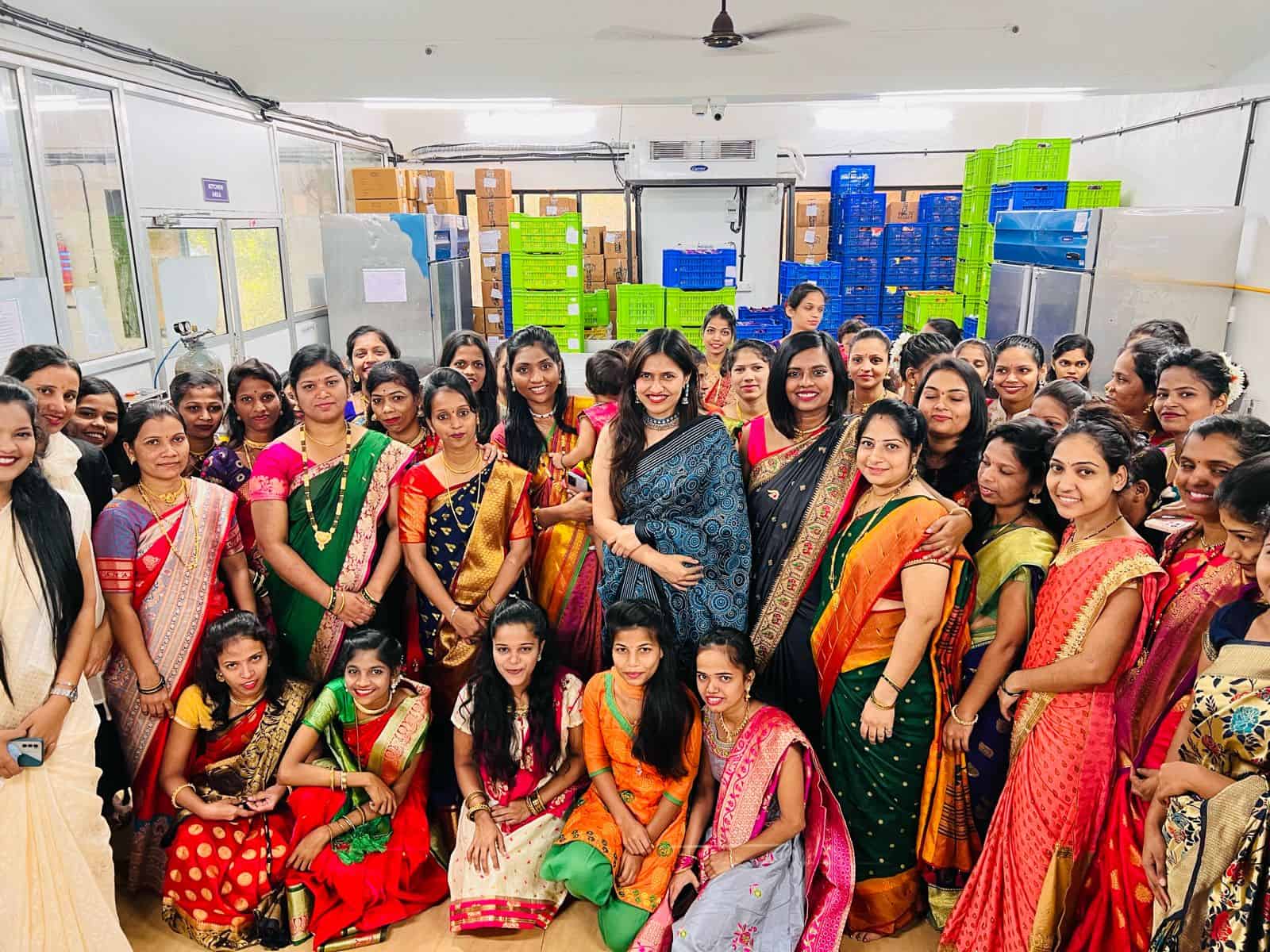
Before heading to Harvard Business School. Ahana worked in the product supply division at Procter & Gamble (P&G) for four years. She went to Whole Foods Market to purchase healthy snacks. This American supermarket chain, as per its website, provides food without hydrogenated fats and artificial colours, flavours, and preservatives. She considers her first visit to the supermarket as her ‘Aha’ moment.
“I was blown away by the options in front of me. I wondered why we didn’t have access to such healthy options in India,” she shares.
As Ahana began running and opting for healthier food, she noticed an improvement in her health. Reflecting on her childhood illnesses and weight issues, she realised that if such products had been accessible in India, it would have been simpler for mothers like hers to provide healthier snacks to their children.
At the same time, her sister-in-law in India was facing the same conundrum as her mother once did — how to pack nutritious food for her daughter (who has Type 1 diabetes) going to school. Two generations of mothers were facing the same problem, and now Ahana knew what her business would be.
“India is an innovation hub, and yet, there was no one solving the problem of making healthier biscuits, cookies and chips. Moms still had to give their children maida biscuits and deep-fried snacks. My sister-in-law had the same options from the same brands as my mother did, almost 30 years ago!” she adds.
To offer improved products to families and working professionals, she came back to Mumbai in 2018. She began conducting surveys to understand people’s food preferences and what factors would make them trust a new brand.
“Everyone said that they wanted to eat healthy, but no one wanted to compromise on taste,” says the now Mumbai resident.
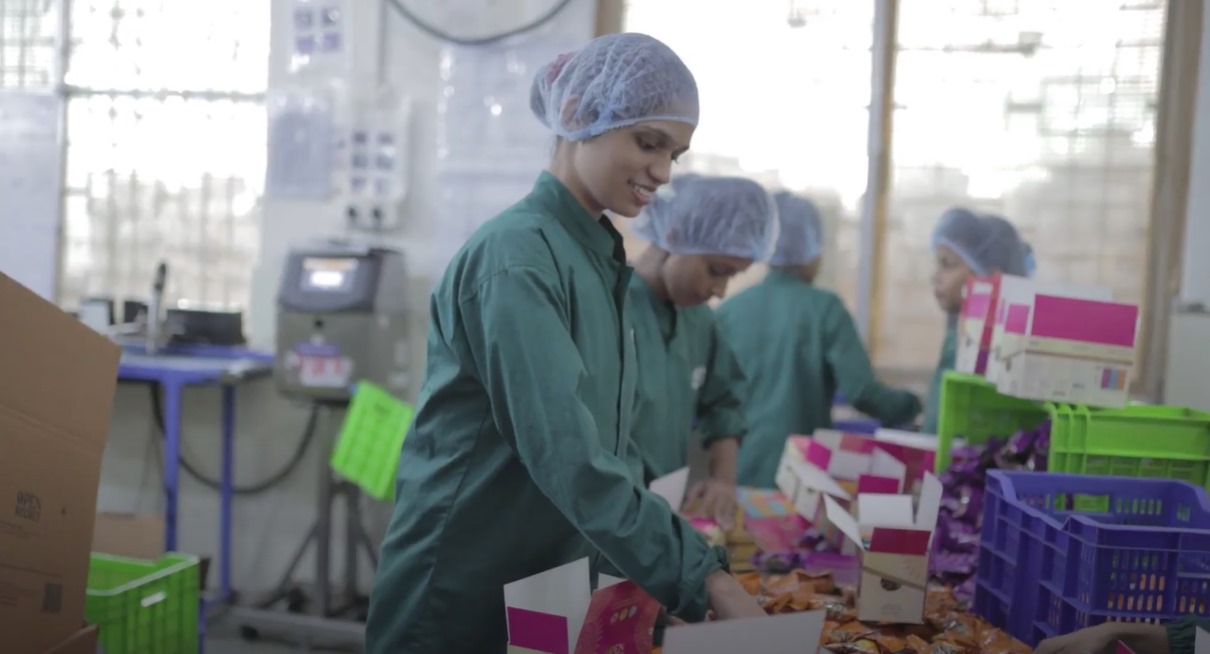
Having worked at Procter & Gamble (P&G) and General Mills, Ahana gained knowledge across various aspects of the consumer goods industry, spanning supply chain, finance, marketing, and manufacturing. In 2019, she left General Mills and founded Open Secret.
Her mother, the second director, provided the company with a paid-up capital of Rs 2 lakh. Following the company registration, Ahana dedicated the next nine months to crafting the ideal ‘unjunked’ snack.
Upon securing investment, her initial priority was finding a suitable manufacturing facility. “I was sure I wanted the shopfloor to be run by women. When I looked at manufacturing units in Bhiwandi, Maharashtra, there was a big problem — there were no toilets for women as there were only men in all these facilities,” she shares. After many visits, she decided to set up her own factory in Bhandup, Mumbai, which would be operated by an all-women team.
The next and biggest challenge was, cracking the perfect recipe and setting up an assembly line for it.
To tackle the first challenge, Ahana revisited her past experiences at other companies. During her time launching new products for a previous brand, she extensively visited customers in metro cities, gaining valuable insights into their snacking preferences. Drawing on this knowledge, she conducted focus groups to identify customer favourites in snacks, cookies, biscuits, and more.
“In the focus groups, we asked people what they liked and disliked in the snacks they were eating. The uniform response from everyone — be it working professionals, students or moms — was the maida. I then asked them what they found healthy, to which most said dry fruits,” she adds.
Based on this feedback and with the help of an in-house R&D team, Ahana worked on formulating the perfect ‘unjunked’ cookie. “We unjunked the typical cookie by replacing maida with 40 to 50 percent dry fruits and millet using less sugar. Most of our products have just 1 to 2 grams of sugar,” she says.
She further involved a group of 100 mothers, dubbed by Ahana as the company’s ‘Chief Innovation Officers’. Ahana sent them various flavours and samples, using their feedback to improve the products. “They helped us crack the right product,” says Ahana.
She asserts that they have taken measures to guarantee the snacks remain delectable even after substituting certain ingredients with their nutritious counterparts. This ensures that customers not only enjoy the taste but also reap health benefits from their consumption. Hence, nine months and 1,000 cookies later, Ahana was ready with the first product — the nutty cookie, which to date is their bestseller.
The next challenge was learning how to manufacture the product. “It’s a one-of-a-kind product with no benchmark. I had to use my engineering skills to set up the right assembly line. We also had to work on extending the shelf life without adding preservatives,” she says, adding that she uses aluminium in the packaging to extend the shelf life of her products.
Ahana finally launched ‘Open Secret’ in January 2020 through online and offline channels.
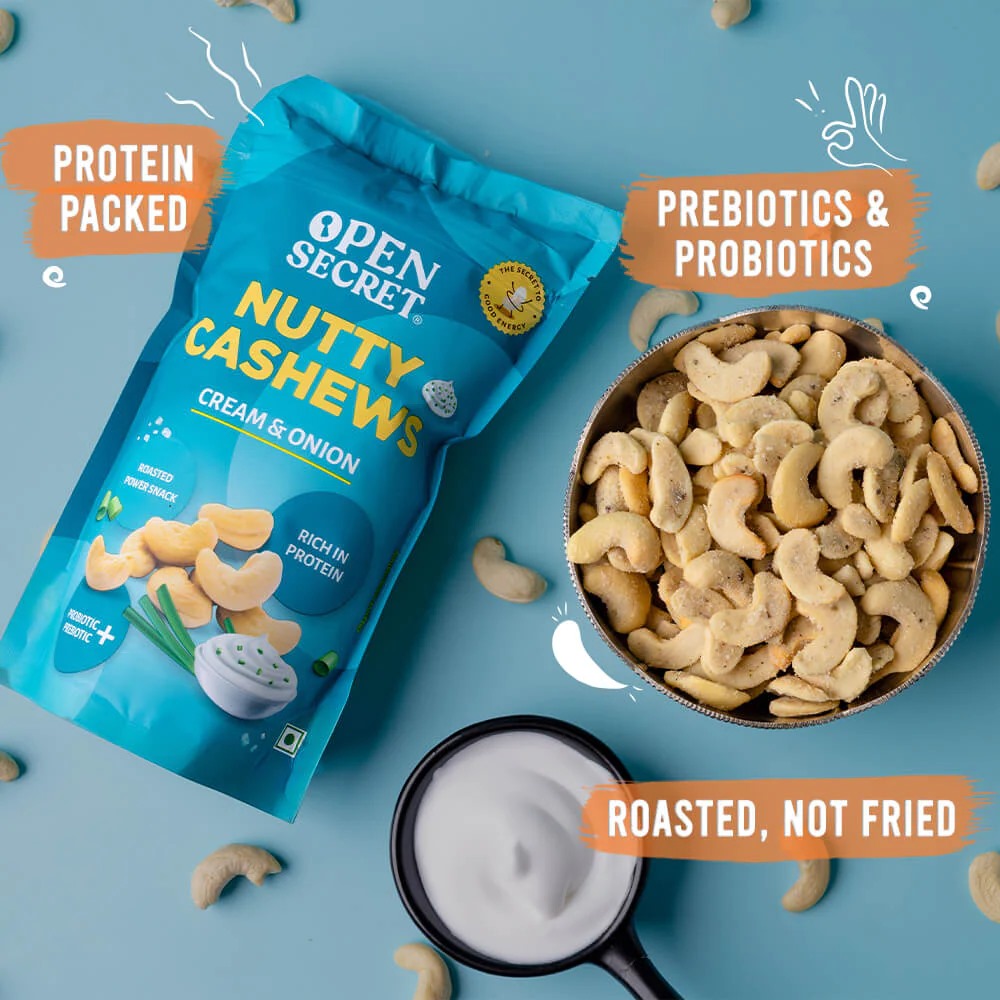
So, how does a new brand draw in customers and persuade them to purchase? Ahana applied her MBA knowledge, utilising the concept of shopper marketing to promote Open Secret. She and her team visited stores, providing free samples of their products. According to the CEO, everyone who tried the product ended up making a purchase.
“We made Open Secret visible at the point of purchase in supermarkets and stores. We did many free trials of the product, as once they try, they will buy. We also incentivised customers using discounts,” says Ahana.
She mentions that they also employed blind tasting to assess their products with consumers. According to Ahana, their Unique Selling Proposition (USP) lies in the fact that their product replicates the taste of junk food, fulfilling people’s cravings healthily.
As they slowly started building their presence, they faced their first roadblock two months later as COVID-19 hit India. Not one to bow down during a crisis, Ahana worked on converting it into an opportunity. They focused on online channels and were able to operate during the lockdown as they fell under the essential categories list.
“We hustled through COVID-19. Once, the cooling refrigeration system at the factory stopped working during the lockdown. We couldn’t get any technician but needed a refrigerator to store our chocolates and products. I brought my refrigerator from home and that’s how we averted a major crisis,” laughs Ahana.
To make themselves visible online, they used banners and discounts, and placed their products across online channels.
The founder states that they grew multi-fold amid the pandemic and sold over 10 lakh cookies. Since then, there has been no looking back. Open Secret sells over 30 products, including cookies, biscuits, chips, dry fruits, snacks, chocolates, brownies, cereals and more.
They are present across online channels including Amazon, Flipkart, their own website, and quick commerce chains like Zepto, Blinkit, Big Basket and more. They also sell through supermarkets offline. Through their platform, they also partner with and sell products from over 100 healthy brands.
Ahana states that they will achieve gross sales of Rs 100 crore this year and wants to become a Rs 10,000 crore company in the coming years.
‘An ode to my mother’
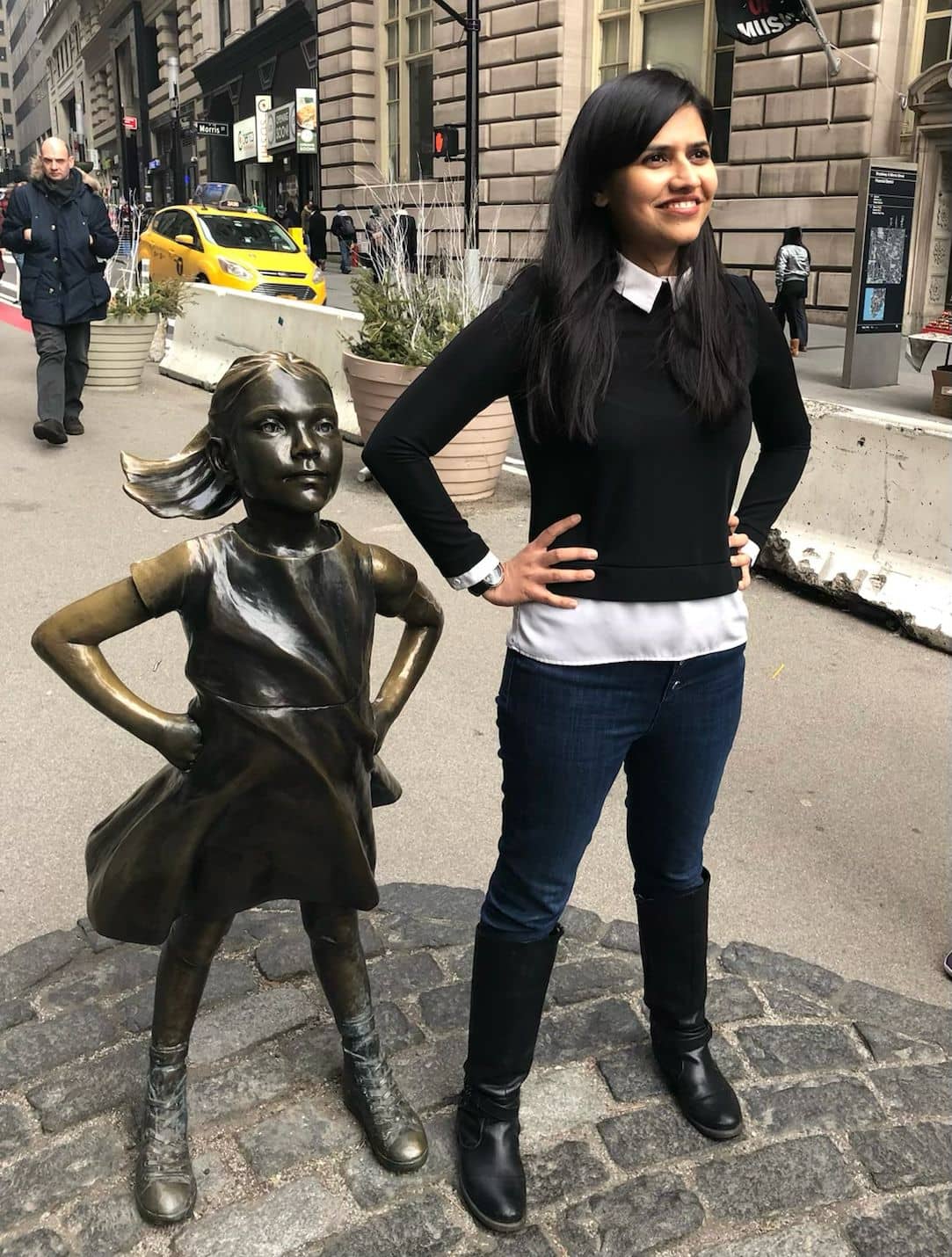
Open Secret’s USP, besides its snacks, is its women, says Ahana.
Their factories are run by 200 women and over 50 percent of its employees are women. Why? Ahana believes that women leaders like her, who are privileged, must provide opportunities to women. After all, it was due to her mother’s belief that this girl from Bharatpur went to IIT, and Harvard, and launched her own brand.
“People still treat a single woman with a lot of judgement. When I returned to India, everyone assumed that it was either because of visa issues or marriage. Why can’t a single woman follow her passions? Why is getting married the only way to settle down?” asks Ahana.
She adds that the most important thing for women is to have a good education and be financially independent. “You’ll be unstoppable,” she says, adding, “I was lucky because my mother gave me that opportunity, but not everyone gets it. Women leaders have the responsibility to provide jobs to other women. Let’s create an equal world for young girls.”
Open Secret, in fact, is Ahana’s love letter to her single mother, who showed her daughter that nothing is impossible. “It is an ‘open secret’ that we are who we are because of our mothers,” says the proud daughter dedicating her brand to all mothers.
While Ahana’s mother saw her daughter open her wings and fly, she passed away during the second wave of COVID-19 in 2021. Ahana had to make a tough choice the next day as she had an investor meeting to attend.
“I could either pause and grieve, or pitch to the investor for our Series A round, and I chose the latter, as I had to build this brand and keep my mother’s legacy alive.”
Edited by Pranita Bhat
No comments:
Post a Comment